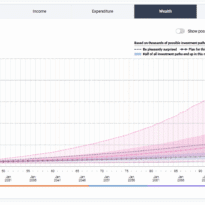Generational labels could adversely affect finances and lead to poor outcomes, new research from Unbiased has revealed.
In partnership with UCL researchers, Unbiased studied personal finance media coverage to explore its impact on future wealth. It discovered that ‘Baby Boomers’ (born 1946-1964) are painted as the primary villain, while millennials (1981-1996) are victims and Generation X (1965-1980) is forgotten entirely.
According to the Make Money Ageless research, over half of the articles (53%) portray Baby Boomers negatively, depicting them as ‘selfish’, ‘stingy’ and ‘greedy.’ Meanwhile, millennials are often framed as victims, with 57% of articles describing them as hapless and disadvantaged.
Almost one in two articles (48%) comparing Boomers to other generations are antagonistic, rising to 56% when comparing Boomers and Millennials and 86% when looking at Boomers and Gen Z.
According to Unbiased, highly emotive language used in articles may be a root cause of people’s feeling of disempowerment, disillusionment and disengagement from their finances. As a cohort, Boomers are almost exclusively defined by their relationship with their wealth, while the emotional landscape for millennials is almost wholly negative, with words related to poor mental health and financial wellbeing such as ‘stressed’, ‘frustrated’, ‘anxious’ and ‘overwhelmed.’
Behavioural psychologist Dr Linda Papadopoulos said: “The ageism found in the language of finance is deeply problematic, not least because these are narratives that we all internalise. If you are constantly being confronted with language that tells you that you’re selfish or helpless or stuck financially, that narrative shapes your attitudes and behaviours around money. It leads to a negative emotional landscape and poor decision making when it comes to taking action that might make us feel more in control of our financial futures.”
The study found that generational labels are dividing older and younger generations into ‘haves’ and ‘have-nots’ and stereotypes are pitting generations against each other rather than discussing common goals.
Unbiased has called for an end to ageism in conversations around personal finance by removing the generational labels, instead focusing people on taking stock of their unique circumstances and goals.
Karen Barrett, CEO of Unbiased, said: “The Pew Research Center has stopped using labels to talk about generations and simply uses age. Embracing your age instead of a lazy generational label is a good start.
“The results of Unbiased’s Make Money Ageless research are clear. Our society creates stories about how different generations act around money, which then changes how people actually think and act. Everyone must consider their unique, individual financial circumstances and goals, rather than following the assumptions about their generation. Focus on evaluating, planning and seeking advice. Not the generalisations, stereotypes and cliches you read about yourself.”































